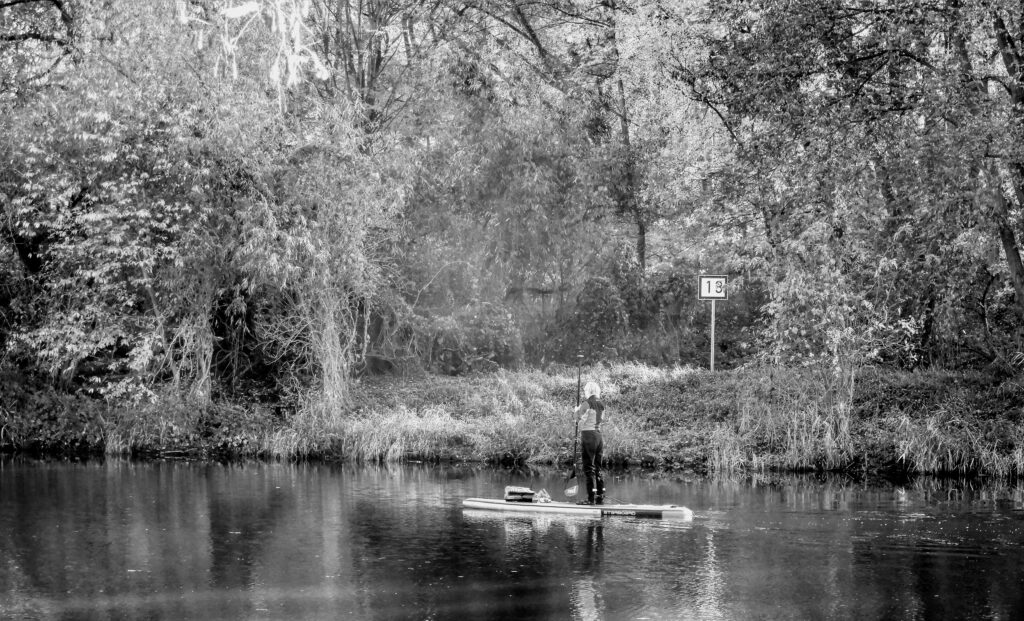Once past the lights of Vineland, the river took back its older form, became what for the Yuroks it had always been, a river of ghosts. Everything had a name—fishing and snaring places, acorn grounds, rocks in the river, boulders on the banks, groves and single trees with their own names, springs, pools, meadows, all alive, each with its own spirit. Many of these were what the Yurok people called woge, creatures like humans but smaller, who had been living here when the first humans came. Before the influx, the woge withdrew. Some went away physically, forever, eastward, over the mountains, or nestled all together in giant redwood boats, singing unison chants of dispossession and exile, fading as they were taken further out to sea, desolate even to the ears of the newcomers, lost. Other woge who found it impossible to leave withdrew instead into the features of the landscape, remaining conscious, remembering better times, capable of sorrow and as seasons went on other emotions as well, as the generations of Yuroks sat on them, fished from them, rested in their shade, as they learned to love and grow deeper into the nuances of wind and light as well as the earthquakes and eclipses and the massive winter storms that roared in, one after another, from the Gulf of Alaska.
For the Yuroks, who had always held this river exceptional, to follow it up from the ocean was also to journey through the realm behind the immediate. Fog presences glided in coves, dripping ferns thickened audibly in the gulches, semivisible birds called in nearly human speech, trails without warning would begin to descend into the earth, toward Tsorrek, the world of the dead.
Source: Thomas Pynchon, Vineland (1990), pp. 186-87
